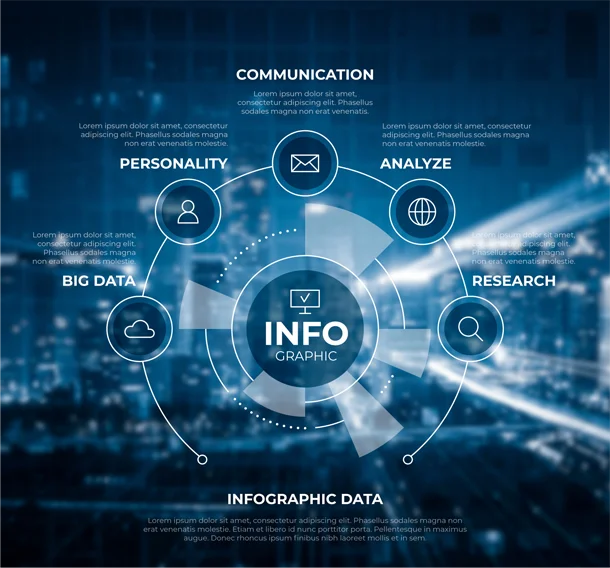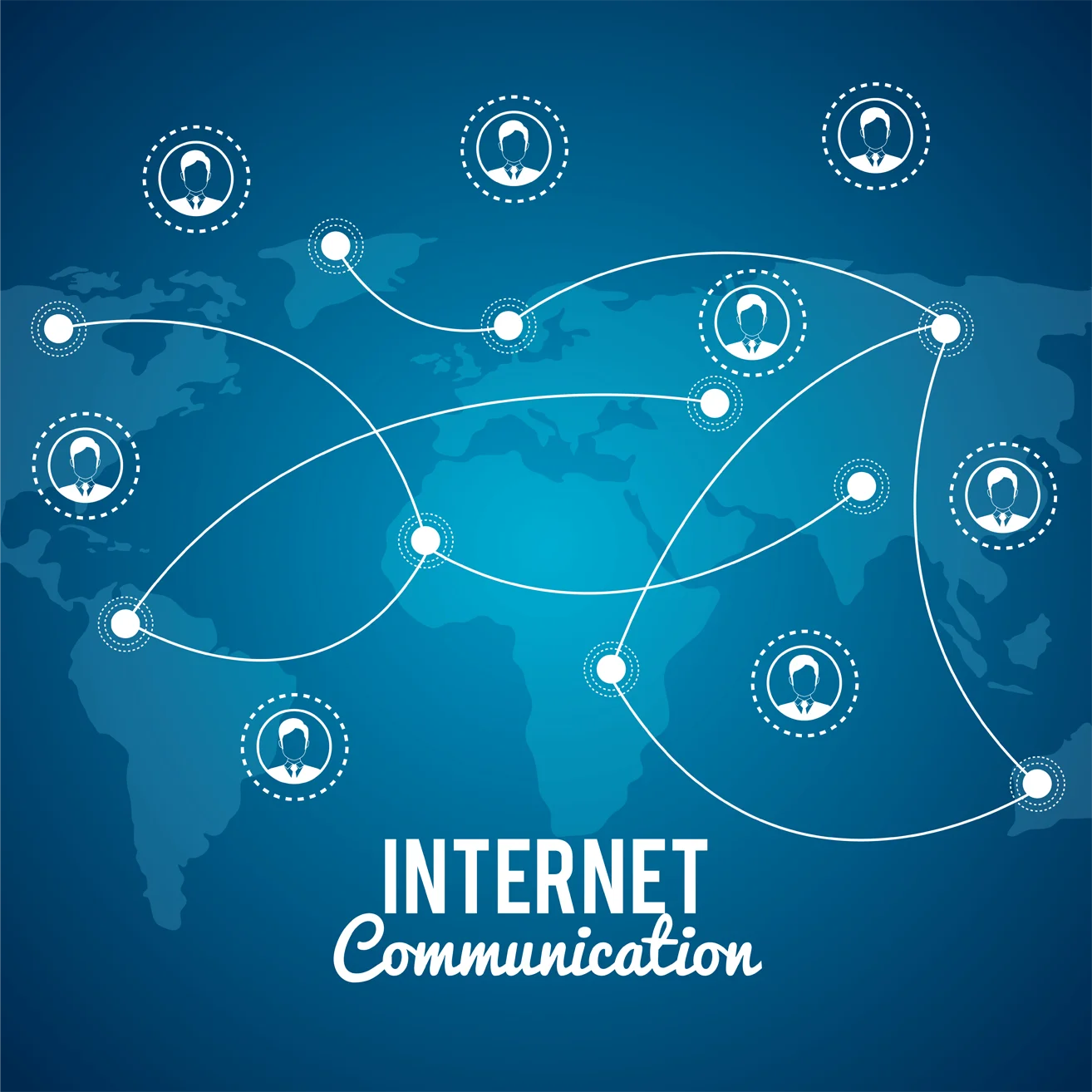New Period Innovation Progress
INFORMATION & COMMUNICATION TECHNOLOGY
ICT is information and communication technology, which uses computing and telecommunication tools and systems to facilitate information creation, processing, and exchange.

The Information and Communication Technology (ICT) module is a crucial part of modern education, equipping individuals with the skills and knowledge needed to navigate the digital world. Here’s a breakdown of what you can expect from an ICT module:
Core Concepts
- Fundamentals of ICT: Understanding the basic concepts of information technology, communication technology, and their convergence.
- Hardware and Software: Learning about computer hardware components, software applications, and their functionalities.
- Networking and Internet: Exploring network types, internet protocols, and online communication tools.
- Data Management: Understanding data organization, storage, retrieval, and security.
- Digital Literacy: Developing skills to effectively use digital technologies for various purposes.
Key Skills
- Computer Proficiency: Gaining hands-on experience with computer operations, file management, and software applications.
- Internet Navigation: Learning to use search engines, online resources, and digital communication platforms.
- Data Analysis: Developing skills to interpret data, create visualizations, and draw meaningful conclusions.
- Problem-Solving: Applying ICT knowledge to solve technical issues and find innovative solutions.
- Communication and Collaboration: Utilizing digital tools for effective communication and teamwork.
Additional Resources
- Online Courses: Platforms like Coursera, edX, and Udemy offer ICT-related courses.
- Educational Websites: Websites like Khan Academy and GCFLearnFree provide free ICT tutorials and resources.
- Textbooks and Publications: Explore relevant textbooks and publications for in-depth knowledge.
Importance of ICT Module
- Essential for Modern Life: ICT skills are crucial for education, work, and social interaction in the digital age.
- Career Opportunities: ICT knowledge opens doors to various career paths in technology-driven industries.
- Problem-Solving and Innovation: ICT empowers individuals to solve problems creatively and develop innovative solutions.
- Lifelong Learning: ICT skills enable continuous learning and adaptation to evolving technologies.
1. In-depth Exploration of Core Concepts:
- Fundamentals of ICT: You’ll delve deeper into the core concepts, including computer architecture, operating systems, networking principles, internet protocols, and data representation.
- Programming Fundamentals: Many full ICT courses include an introduction to programming, teaching you the basics of coding and software development. This could involve languages like Python, Java, or C++.
- Database Management: You’ll learn about database design, data modeling, and how to use database management systems (DBMS) to store, retrieve, and manage data effectively.
- Networking and Cybersecurity: This section will cover network topologies, network administration, and cybersecurity principles to protect data and systems from threats.
- Web Development: You might explore web technologies like HTML, CSS, and JavaScript to build websites and web applications.
2. Hands-on Experience and Practical Skills:
- Lab Sessions: You’ll participate in hands-on lab sessions to apply the concepts you learn in lectures. This could involve setting up networks, configuring software, writing code, or working with databases.
- Projects: You’ll likely work on individual or group projects to develop ICT solutions for real-world problems. This could involve designing a website, building a database, or creating a software application.
- Case Studies: You’ll analyze real-world case studies to understand how ICT is used in different industries and organizations.
3. Specialized Tracks and Electives:
- Specialization Options: Some full ICT courses offer specialization tracks, allowing you to focus on a specific area of interest, such as cybersecurity, networking, software development, or data science.
- Electives: You might have the opportunity to choose elective courses to further explore specific topics or technologies that align with your interests and career goals.
4. Career Preparation and Professional Development:
- Industry Connections: Many full ICT courses have connections with industry partners, providing opportunities for internships, job placements, and networking.
- Career Guidance: You might receive career counseling and guidance to help you explore career options and prepare for job interviews.
- Certifications: Some courses may align with industry certifications, allowing you to earn credentials that demonstrate your skills and knowledge.
5. Benefits of Completing a Full ICT Course:
- Strong Foundation: You’ll gain a solid foundation in ICT principles and practices, preparing you for a wide range of careers in the technology industry.
- Practical Skills: You’ll develop practical skills that are highly valued by employers, making you job-ready upon graduation.
- Career Advancement: A full ICT course can open doors to various career paths, including software developer, network administrator, cybersecurity analyst, database administrator, web developer, and IT manager.
- Lifelong Learning: You’ll gain the skills and knowledge to adapt to the ever-changing world of technology and continue learning throughout your career.

A comprehensive Information and Communication Technology (ICT) course provides a deep dive into the world of technology, equipping individuals with the knowledge and skills necessary to thrive in the digital age. Such a course goes beyond basic computer literacy, exploring core concepts like computer architecture, operating systems, networking principles, internet protocols, and data representation in detail.
A key component is often an introduction to programming, teaching students the fundamentals of coding and software development in languages like Python, Java, or C++. Database management is also typically covered, including database design, data modeling, and the use of database management systems. Furthermore, these courses often delve into networking and cybersecurity, exploring network topologies, administration, and crucial security principles to protect data and systems. Many full ICT courses also incorporate web development, teaching students to use technologies like HTML, CSS, and JavaScript to build websites and applications.
Learning is reinforced through hands-on lab sessions, projects that simulate real-world challenges, and the analysis of case studies. Some programs offer specialized tracks in areas like cybersecurity, networking, or software development, along with elective courses for further exploration. Career preparation is a significant focus, with many programs offering industry connections, internships, career guidance, and alignment with professional certifications. Completing a full ICT course provides a strong foundation for various tech careers, enhancing practical skills, and fostering lifelong learning in the ever-evolving technology landscape.
These comprehensive programs can be found at universities, colleges, technical schools, and increasingly, through online learning platforms.
